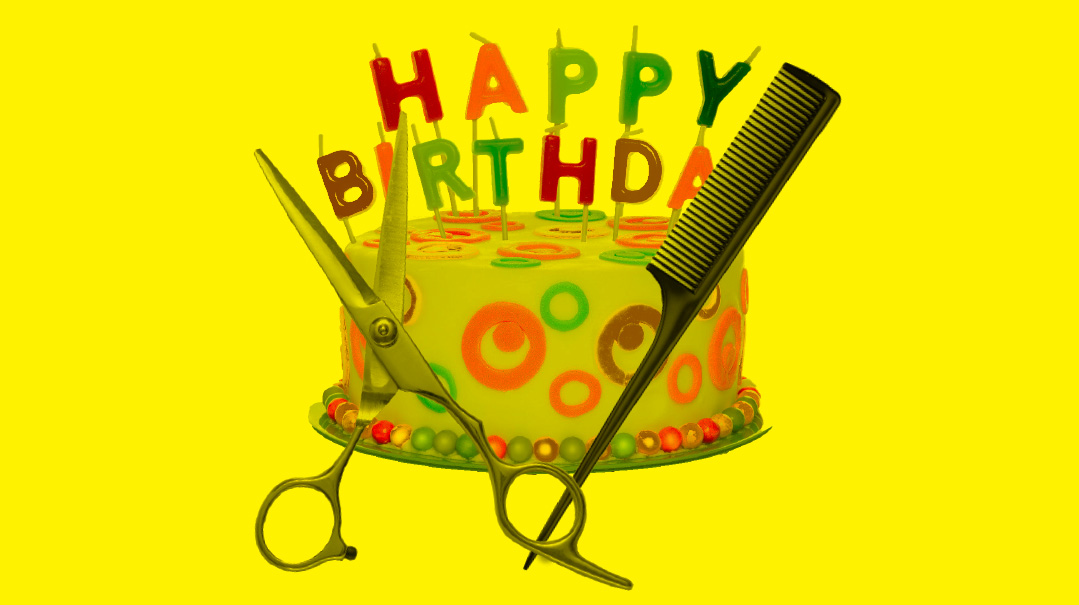Prisoner No More

"This is getting out of control. The debt cycle becomes a death spiral. My whole life is a mess"

The problem is that debt becomes a way of life. You take out a student loan to get a degree. Well, that makes sense — it gives you a lifetime ability to earn a living. You finance a car. A car is not a luxury. You need a car. You buy a house and you need a mortgage. Everyone knows a mortgage is good debt. You have more kids and now you need a van, so you finance another car. Do you think I could save $15,000? You pay for groceries and tuition and camp and braces and for a new washing machine. Life is so expensive. You take out a line of credit to make a bar mitzvah.
How does everyone else do it? You only use the credit card for emergencies, but there are so many emergencies. It’s not like I’m splurging on a vacation. I have no choice but to fix the fridge! Sometimes it feels like all your income is going to monthly payments. I work so hard and I don’t even see the money. You try not to think about it. Because what can you do about it already? Until you can’t make the payments. This is getting out of control. The debt cycle becomes a death spiral. My whole life is a mess.
Is there a way out?
SIX FAMILIES RETRACE THE JOURNEY
Name: Aryeh Derringer
Age: 29
Family size: 3
How much debt you paid off: $23K
How long it took: 2 years
Total household income during that time: Started at $45K, we managed to push it up to $110K by the end of that period
We thought we were living within our income. But we’d never saved.
We got into debt by accident.
I guess no one gets into debt on purpose. But what I mean is that we didn’t realize we were getting into debt. It’s not like we made a formal decision to take out a loan or borrow money. We just didn’t realize that we weren’t covering our expenses anymore.
I used to say it started when we moved to a new home, and our income and expenses changed suddenly. But looking back, I know it really started before we moved. It started when we didn’t plan for the move by saving in advance for the cost of the movers, the real estate broker’s fee, and the extra expenses involved in moving. We just assumed it would all work out somehow — but of course, it doesn’t just happen like that.
Moving was an enormous upheaval. I started a new job. My wife had to start commuting to her existing teaching job. We had a new neighborhood to acclimate to and new schedules to adjust to. It was pretty overwhelming, even without thinking about our new financial reality. Which we didn’t.
Until I got the credit card bill.
“We have a pretty big credit card bill,” I told my wife. All the extra expenses had landed on the credit card.
“How big?”
“A few thousand.”
She was shocked, but we rallied — the school year was almost over, and then she’d get a better job. We could pay off the credit card in a month, I figured. It would be okay.
But it wasn’t okay; after four months, our credit card bill had ballooned to $23,000.
Twenty-three thousand dollars!
But what were we supposed to do about it?
It was tempting not to think about it — to put my head down and keep working and hope it would resolve itself one way or another. But that strategy hadn’t worked until now.
We tried writing a budget. That solved one problem; we were able to see clearly that our income wasn’t enough to cover our expenses. But it didn’t actually give us more money.
Trimming our expenses to fit the available income was really hard. My wife’s friends were going out for ice cream, and she couldn’t join them. When my brother got engaged, we didn’t have money for a babysitter, so we took the baby along to the l’chayim. It wrecked his schedule and the whole event was less fun.
In the past, we’d have just said, “Well… we need a babysitter,” and not thought any further about it. Now we didn’t spend a penny that we couldn’t account for on paper. We never ate out, not even for our anniversary. We forced ourselves to cut our grocery budget by $200 a month, which made grocery shopping very stressful. When we were invited to chip in for gifts for family or friends’ simchahs, it was always a crisis — we just didn’t have the money.
I felt angry and disappointed in myself. All around us, our friends and siblings were buying houses, moving up in life. And we were stuck in place, killing ourselves to pay off this enormous sum. We felt like we were choking, and I felt like a loser.
Over time, things shifted slowly in our favor. When my wife finished the school year, she found a better job, and that helped a lot. A few months later, I got a promotion and raise. My wife took an additional side job on Sunday mornings — that alone brought in $500 each month. We felt like we were in a better place.
My wife and I started meeting weekly to review our budget. That helped us catch mistakes before they got too costly — like when our grocery bill started creeping up again, or when we fell into the habit of buying lunch.
Sticking to a budget and paying off debt is a very big, very hard thing to do. It’s especially hard when it takes a long time. We spent one year just struggling not to build more debt, then two more years struggling to pay it off. That’s a very long time to stay committed and inspired.
When our income improved, we were able to start paying significant sums each month toward the debt. But we also eased our budget a little. I wanted my wife to be able to go out for ice cream with her friends. I wanted to take her out to eat once a year for her birthday or our anniversary. But we still avoided large expenses like vacations (we didn’t go on vacation for that entire three-year period), and we maintained the “cutting corners” mindset. Most importantly, we stuck to our budget and continued focusing on paying off our debt.
It got easier over time (everything does). There came a point when we were able to put large sums every month toward the debt — $1,500, even $2,000. That was a great feeling! We were able to really see our progress, which made everything worth it.
But there were setbacks too. We had a medical crisis, which, aside from being physically and emotionally draining, was also very expensive. For a few months, we had to focus on those bills, and couldn’t pay anything toward the debt.
That was really the same issue we had when we moved. Although we’d lived within our income, we’d never saved money for emergency expenses. When unusual expenses cropped up (and they always do), it became a crisis. Instead of going into debt and paying for it afterward, saving in advance would have made things so much easier and less stressful — and we would have avoided the enormous interest fees, of course.
That’s my plan for the future — if I ever want to go back to school, or we’re making a simchah, or we want to buy something expensive, we’ll save for it in advance. Having an emergency savings fund for things like car repairs or medical expenses protects you from falling into debt over the things you can’t predict.
Making that last payment was an amazing feeling. We were really looking forward to it — one more month and then we’d be done. Then, out of the blue, our stimulus check arrived. We could pay it off a month early!
But my wife suggested we wait. “Let’s put this aside for the beginning of our new savings account,” she said. “In one more month, we’ll be done with the debt anyway. This will be our new beginning.”
It felt kind of right — to make that last payment ourselves, no shortcuts, after all the work we had put into this.
In our community, there’s this attitude that buying a house is the most important thing. Why waste your money on rent? That’s like paying someone else’s mortgage! And buy now — prices are going up every day! There’s an enormous pressure to put together the money somehow, anyhow — just buy a house already.
Around the time we started hacking away at our debt, my friend bought a house. He couldn’t afford it — I knew that because he told me so. He’d borrowed money from his father, his father-in-law, and his brother-in-law for the down payment. Three years later, he’s in trouble. He doesn’t have the money to pay back his family, and he’s struggling to make the mortgage payments. He’s terribly stressed about money all the time. He told me it’s going to take him three more years just to pay back the down payment.
That conversation was very eye-opening for me. I had been jealous that he could buy a house, but right now, I’m debt-free. When he finally finishes paying back his down payment, I’ll hopefully have finished saving my down payment and be ready to buy. I thought he was getting ahead, but it doesn’t look like that anymore.
I try not to beat myself up about my past mistakes. We were young and inexperienced. We didn’t know to save for a rainy day. I also didn’t realize how much I had to involve my wife in our financial decisions. I had this belief that the “frum thing” was for the husband to manage the finances on his own while his wife remains blissfully ignorant. If that works, great, but I think for most couples, it wouldn’t work too well. We both feel calmer and more secure when we know we’re working on this as a team.
We’re looking forward to taking a nice vacation together soon. This time, we definitely earned it.
Name: Zahava Josilovitz
Age: 31
Family size: 6
Total debt: $50K
How long it took to pay off: 1 year, 8 months
Total household income (after taxes) during that time: $130K per year
Borrowing money felt so normal, we didn’t even think about it.
We were the typical young couple: My husband learned, I worked; we lived in a rented apartment, drove an old car, and had an adorable baby. When the car died and we needed another one, we just financed it, no big deal. At that point we actually had the cash available, but we didn’t know how to manage money — we figured, why not hang on to our cash and borrow to pay for the car? Doesn’t everyone finance their car? We could have our cake and eat it too. Borrowing money felt so normal, we didn’t even think about it.
But a few years down the line, we started thinking differently. Our family had grown, and we wanted to buy a house. My husband hated his dead-end job and wanted to get a degree. These things cost real money. How were we supposed to make it happen?
So we did the only thing we knew — took out a student loan. Now we were a young couple, three kids, two student loans and two car loans. Out of our monthly income of $7,000, we were paying $700 toward our debt. Gulp. How were we ever going to buy a house?
When I read The Total Money Makeover by Dave Ramsey, it just made so much sense. My husband and I decided we’d try it. The basic idea was to live as frugally as possible and throw every extra dollar at your debt. Once you’re free of debt, you save up an emergency fund so that you don’t get into debt again, and from then on, you save for expenses in advance instead of borrowing.
To be honest, it sounded pretty intimidating.
But here’s the thing — once we started, we got hooked. It became an adventure — how much money could we trim from our expenses this month? How far could we stretch this dollar? The shrinking debt gave us a high that made up for any regret we felt over the things we couldn’t buy.
We weren’t so extreme. We didn’t make our own detergent or grow our own vegetables. We had a family already, and there was a limit to what we could cut. But we worked hard to create a budget and stick to it. The goal was to keep costs down, but still be “normal.”
We live in a rental. We get hand-me-downs for our kids, but I buy their Shabbos clothes new. When we do need to buy clothes, I shop in Target and Children’s Place. I don’t buy much clothing for myself, and when I do, I’ll shop sales. I have only one sheitel; Chol Hamoed trips are very low-key; we don’t go on vacation. Once a year we travel to visit my husband’s parents, but we drive instead of flying, because it’s cheaper. Some years we’ll go away for two nights in the summer, but it’s a real budget getaway — hotel points, barbecue in the park . Zehu.
The truth is, I was pretty pessimistic at first. I didn’t think we were ever going to be able to pay off our debt. Fifty thousand dollars is a lot of money! But once we started budgeting, we saw where the money was going, and we were able to structure our spending. Without a budget, the money just disappeared; with a budget, we could see the money and control it.
It’s not like I particularly value frugality. If you have the money, by all means spend it. But the key is to know if you have the money. For that, you need a budget. It got exhausting to be constantly worrying if I could spend money on something or not. With a budget, I always knew the answer. And our sacrifices felt purposeful. I loved inputting the numbers into our spreadsheet. It made the whole thing so concrete, we could really see the progress we were making.
There were some unexpected perks. We found that budgeting together was healthy. It put us on the same page, forced us to face reality, forced us to have important conversations about our values and goals. It forced us to support each other when we each inevitably felt discouraged or impatient. It’s easy to see why money problems would drive a couple apart, but having a shared goal brought us together.
Dave Ramsey recommends paying off loans from smallest to largest. Our two smallest loans were our car loans, and when we paid them off, we felt amazing. The bank sent us the title to the car with a letter stating that the loan was closed — I wanted to frame it and hang it up (don’t worry, I didn’t). But that slip of paper left me with a feeling of awe.
That left us facing the student loans — $40,000 for my husband’s degree. It was a huge sum, and we didn’t get that satisfying feeling of progress like we did with the car loans. I had to take a huge breath; this was going to be a long haul. When Covid hit, student loan payments were paused, but we just wanted to get it over with already. (We did have this fear that Biden would cancel all student debt and we’d kick ourselves, but we didn’t think it would really happen… and it didn’t.) When the stimulus payments came in, they went straight to the debt. We made the last payment in November. I have a video of us sitting in front of the computer, making that last payment to wipe out our last loan. It was exhilarating and so empowering.
I’m not going to lie; it was hard. I didn’t always feel like being responsible. There were times when I just wanted to throw the whole thing out the window and buy whatever I wanted, like “everyone else.” The hardest part was to keep making that choice, over and over, to choose tomorrow over today.
Now we’re debt-free. Woo-hoo! Our new goal is to save enough money that we can buy a house in our community without being killed by an unmanageable mortgage. It’s a lot of money, and it’s taking a lot of time. It feels like we conquered one mountain just to find ourselves at the bottom of another. But I’ve proven to myself that it’s possible. I’ve proven to myself that it can be done.
Name: Mindy Rabinowitz
Age: 44
Family size: 6
Total debt: $54K
How long it took to pay off: 2 years
Total gross household income by the end of that time: $168K
It was overwhelming, so we ignored it.
About four years ago, we suddenly discovered that we were over $54,000 in debt.
I know what you’re thinking — debt like that doesn’t happen suddenly. But that’s how it felt to us. We work hard, we live simply. We had no idea how big the hole was.
Maybe we were also in denial. Because working so hard and living so simply, it was hard to face the fact that we still weren’t making it. Maybe it was just easier not to think about it.
But in the spring of 2018, when I couldn’t pay for camp registration, it felt very sudden. Suddenly, there was no money in the account. Suddenly, all the credit cards were maxed out. Suddenly, I started making calculations. Suddenly, there was $54,000 of debt in outstanding personal and credit card loans. We owed money to our kids’ schools. We owed money to our shul. We owed money to relatives. We owed money to seven different credit cards. We hadn’t paid the water bill in over a year.
Help.
Where in the world had all this debt come from? We never went on vacations or bought jewelry or other big-ticket items, so how did this happen? It took us about four weeks just to figure out the numbers — whom we owed money to, what our expenses were, what our income was.
We discovered that we were simply running a large deficit — food costs money, clothing costs money, we had a large deductible when our car was hit, a surgical procedure had cost a lot, one of my kids needed therapy… and most of all, we were paying a lot in tuition: $42,500 per year, to be exact. We just couldn’t afford that. To cope, we’d relied on credit cards, occasionally transferring balances to other cards to take advantage of offers like “one year 0% APR.” It was shocking, embarrassing, and beyond overwhelming, and we had no idea what to do.
At that point we made a crucial decision. I don’t think we knew then how crucial it was, but looking back, it was the moment everything changed. We made the decision that we were not going to hide. As humiliating as it might be, we were going to reach out for help.
I called the bank and explained our situation. They graciously refunded $800 in late fees. They also advised us to set up an alert system under which we’d be notified if our balance was low (we set several thresholds), so we could avoid overdraft.
We worked on organizing our system for bills and correspondence, so we’d always know about any bills or notices that came in. No more head-in-the-sand. We also arranged for all the bills to be due either on the first or the fifteenth of every month (which aligned with when we were paid).
My husband and I both already had second jobs, but we took on more clients, so we were each essentially working two full-time jobs.
We created a budget based on our current income. Our goal was to spend as little as possible so that we could use every available dollar to kill the debt. I bought only the minimum amount of food, enough that no one would be hungry. I didn’t buy candy or treats. We never went out to eat or bought takeout — not even pizza.
Then we called the schools.
At the time, we were paying $42,500 in tuition for four kids. We were brutally honest on that call. We told them there really is no money. We told them about the steps we were taking to fix it. We shared with them an excruciatingly detailed breakdown of our finances. We asked them to help us.
That phone call was one of the hardest parts of the entire journey.
One school forgave the last tuition payment. The other agreed to defer our tuition payments temporarily, and reduced the amount we had to pay. That gave us some breathing space. They both also adjusted our tuition obligation for the coming year, which would be $28,000 total, down from $42,500 — a $14,500 decrease.
But one school went a step further. This was Purim time, just ahead of the Pesach Yom Tov season. A school representative handed us an envelope with cash. I don’t know who it was from or who arranged it, but they told us simply to use it for whatever we needed.
Others also helped. A math-savvy friend helped me build a spreadsheet with automatic formulas to help us manage our money. Mesila provided us with free counseling. A relative paid off our water bill — $1,200. “You’ll pay it forward one day,” she told me, and never mentioned it again. A family member gave us $2,000.
It was humiliating and comforting all at once.
At this point, we had stabilized. We had a budget that was covering our expenses so we weren’t building more debt. We had paid off some of the debt, and now we had to figure out what to do about the remaining $47,000 we still owed. Mesila explained that there were two ways to deal with a deficit — spend less, or earn more. With our detailed budget, it was clear that we couldn’t spend less. My husband started looking for a new job that would earn more.
We explored the option of debt consolidation. The debt would have had to be consolidated into two or three separate loans, and would have taken us about ten years to pay off — although I had no idea where we would get the cash to make those monthly payments, we were already working as hard as we could. Bankruptcy was not an option — we were making too much money.
We felt trapped.
Then a few things happened. My husband was offered a new job — at a $40,000 increase. It felt like winning the lottery.
(Although the schools had adjusted our tuition obligation for the coming year, we felt that it was only yashrus for us to inform them of our income increase. They generously honored their reductions so we’d have the opportunity to free ourselves of the debt.)
I also switched jobs, and my old job paid out the vacation time I was eligible for. It was $4,000, and we used most of it to pay down some of the debt.
We managed to squeeze out some money and bring the total debt down to $44,000, which was spread across five credit cards. Although it made us very uncomfortable and didn’t feel right, we decided to negotiate with the credit card companies to reduce the debt. We were able to reduce the $44,000 by about $20,000, and we managed to pay off the balance within two years.
The one-year grace period, when we had the increased income and lower tuition, was a game changer. We lived terribly frugally during that time. Our kids didn’t go to camp — instead, we worked (two jobs each), while our older children supervised the younger ones. We used only cash to pay for purchases. If something wasn’t in the budget, we just didn’t buy it. Our kids missed some school trips and shabbatons because we couldn’t pay for them. It was a very difficult time.
Now, we have no debt. We pay more in tuition, and our kids get braces and go to camp and we even eat out on occasion. But we’re still living very carefully. That’s one of the most frustrating things — how hard we work, how simply we live.
We look at finances differently now. We had found it overwhelming, so we ignored it, but then it only became more overwhelming. Our new approach is that finances are the joint responsibility of both spouses. We live within or below our income, stick to our budget, and give as generously as we can.
I don’t wish our situation on others, but I want others to know that it’s okay to reach out for help. Don’t let fear or shame drive you further into debt. You’ll pay it forward one day. Even when you’re in middle of a disaster, try not to lose sight of Who is really in control.
I wish things could have been different. I wish we could take the kids on a vacation in the summer. I wish we could go on vacation. I wish they hadn’t had to miss school trips. I wish that we had never gotten into that debt mess to begin with.
But I comfort myself that things are going to be different now. It was a huge problem, but with Hashem’s help, we did resolve it. Maybe one day in the future, we’ll be able to take a family trip. We’ll give our kids other things. Ultimately, Hashem makes sure that each of His children has what’s best for them. I guess that goes for us, too.
Rivky’s story:
By some Divine miracle, we had managed to pay off about $23,000 of debt in a little over two years. About $3,000 was a car loan, about $5,000 was credit card debt, and about $15,000 was a second mortgage. That left just $3,000 on the last car loan, and then we’d be debt free.
Then we got our stimulus payments. Now we had the $3,000 and could pay off that last line item!
But the thing was, I really needed a new sheitel.
I was so torn. I had learned so much about money. About how to control it so it doesn’t control you. About the importance of being free from debt. About saving in advance instead of borrowing from the future. And I had put my money where my mouth was: we had scrimped and skimped and managed to pay off So. Much. Money.
We were almost done. But I really wanted a new sheitel. Every time I looked in the mirror, I cringed.
I told myself I was almost there. I could pay off the car loan now, and then save up for a sheitel. I thought I would probably be able to buy one in a year, a year and a half. It was the right thing to do. It was worth it. If I used the money to buy a sheitel and kept carrying the car loan, I’d be betraying every sacrifice I’d made over the past two years!
But… I really wanted a new sheitel. I really needed a new sheitel. Wanted. Needed. I didn’t even know which. Dignity is also important. Or was that just an excuse? Is there a middle path?
I bought the sheitel. We’d have to live with the car loan for a little longer.
Did I just make the same mistake all over again?
Name: Zalman Weiss
Age: 35
Family size: 8
Total debt: $110K
How long it took to pay it off: 15 months
Total household income during that time:
$94K per year
“I had a house, but I didn’t have a life.”
A few years ago, I bought a house. I was able to get a mortgage for 60 percent of the purchase price, which meant that I needed to put 40 percent down. I only had a small amount of cash available, so I borrowed the rest — small loans from family and friends. I figured that in a little while I’d be able to refinance and pay them back.
But I wasn’t able to refinance, and I wasn’t able to pay them back.
A little while later, we faced a medical challenge. Baruch Hashem, it was resolved, but it left us with huge bills. I had to resort to paying our expenses with credit cards, juggling cards and payments. I was scrambling to pay the most urgent bills before we lost services, desperately trying to make the minimum payments on the cards so I wouldn’t kill my credit. But there was no way to keep up — pretty soon our cards were maxed out, and everything started crashing. It was overwhelmingly stressful — I couldn’t pay our bills, I couldn’t buy groceries, I couldn’t buy gas for the car.
I had a house, but I didn’t have a life.
I knew I needed to do something, but I had no idea what to do. I’d heard of Mesila over the years. I’d even reached out to them once, years back, and tried to get my finances in order, but I dropped the whole thing after a couple of months; it was just too hard. But now I heard there was a new system — you pay $400, you get a coach, the whole thing was more developed and sophisticated. So I reached out to them again.
The first step was to figure out the numbers. How much was I actually earning? What were my actual expenses?
Until then, my attitude had been kind of flippant — yeah, I basically have enough money to get through a regular month. Yeah, things like making Pesach were complicated. I tried not to think too deeply about it, because I couldn’t do anything about it anyway. But my coach pointed out that Pesach comes every single year — it’s not a surprise. When the dust settled, I was shocked to discover that I was running a deficit of $17,000 a year.
No wonder I was in debt.
And debt kills. By using credit cards, my money was disappearing on interest payments instead of going toward my groceries. I had to get out of this mess. It was tough to face the fact that I really needed to do this. And even once I faced the hard truth, the despair was overwhelming — I didn’t think anyone could really help me.
I created a bare-bones budget, but it was still $400 more each month than my income.
“How is this going to help?” I asked my coach.
I didn’t like his answer — he told me that he’d seen that when people really make sincere hishtadlus, they merit siyata d’Shmaya. It sounded like a joke, but I went along with it. I had no other options.
I finally managed to refinance, which reduced my mortgage payments by $200 a month. That was half my monthly deficit! I was able to take out some cash in the refi, and I used it to repay the personal loans. That was a tremendous relief.
I was still left with the credit card debt. Mesila advised me to reach out to a lawyer who specialized in credit card debt. I settled my Chase card at 20 percent and my Amex at 30 percent. I know it’s very rare to get such a favorable settlement — I guess that was the siyata d’Shmaya at play.
I don’t rely on my credit card to make purchases anymore. I use the envelope system. My paycheck is direct-deposited every week. It gets split into two accounts: one for the mortgage, and one for expenses. The mortgage is set on autopay, so the money gets automatically deposited, and the mortgage gets paid automatically every month, without the money ever passing through my hands.
The rest of the money, in the account for expenses, is withdrawn every month in cash. Then I divide it among my envelopes. Each envelope is marked with a specific expense and the specific amount I need for that expense — for example, groceries, $2,000; phone bills, $35. When I need to pay for those expenses, I take the cash from the envelope. I can see clearly each month if I’m running short, and I can adjust as necessary — like by taking a bus instead of a taxi.
The first two months were torture. I couldn’t fill up the envelopes with the amounts I needed — I just didn’t have enough money. What was the point? But I kept at it. I switched to a cheaper phone plan and saved $20 a month. I changed the light bulbs in my house to energy efficient bulbs and trained my kids to shut off the lights when they leave the room, which reduced my utilities.
All the small changes added up — especially since I knew exactly how much of a deficit I needed to fill. After two months, I suddenly realized that I had enough money for all the envelopes. It was a turning point. My income also improved as time went on — again, the siyata d’Shmaya at work.
I paid off the debts from smallest to largest (except for people who needed the money back badly — I paid them first). That was a very motivating system, because you feel like you’re making real progress. My smallest debt was $300 and my largest was $50,000. I crossed them off one by one, and it felt great — I’m getting there. When I finished paying off the last debt, I had an exhilarating sense of freedom. Now, all my income can go to my current needs, instead of being sucked away by the past.
It might sound like I got off easy, refinancing and settling the credit cards. But the key for me was learning to manage my income so I don’t end up right back in debt again. We’re making a bar mitzvah soon, im yirtzeh Hashem, and I have a bar mitzvah envelope — every week I put in $80. When I arrive at the bar mitzvah, I’ll be as free as any guest; I’ll have the full amount in cash by then.
I’m also hoping to do some home improvements soon. But I’m a different person now. I got quotes from three contractors, and I’m not going to start the work until I have the full amount saved in cash. My perspective on what’s “necessary” and what’s just “nice” has shifted too. Because the nicest thing is not being in debt.
What’s so bad about debt, anyway?
There are two kinds of debt. Some debt has a “payback” — for example, a student loan used to pay for your education. Borrowing that money presumably allows you to earn more money in the future. The other kind of debt has no payback — for example, accruing credit card debt for day-to-day living expenses. While the first kind of debt may arguably be defensible, the second kind is a real problem. And it’s a growing problem; it grows interest and it grows penalties (and often, it grows more and more principal as well).
I had clients, a young married couple, who had bought a new couch. It cost $2,000, which they did not have, so they charged it to their credit card. Time passed, their family grew, their expenses went up. Just like they hadn’t had the money to buy the couch, now they didn’t have the money to pay the bill. For years, that credit card bill was like a weight around their necks. It tied up their money and stressed them out. By the time they finished paying for that couch, they had paid over $4,000. The accumulated interest and fees added up to more than the $2,000 of the original purchase price.
Still, that couple was lucky — they learned their lesson and didn’t keep putting things on the credit card. Sometimes, a couple doesn’t really acknowledge that their income is no longer covering their expenses, and their debt grows with their hardly being aware of it. They build debt almost mindlessly, without really understanding the slippery slope they are hurtling down. When the earning-spending gap persists for a long time, the minimum payment balloons, rivaling the size of a mortgage payment, or more. That monthly financial burden (Just to maintain the debt! Not even to decrease it!) is another huge expense that further widens the gap between income and expenses. And eventually, they will max out their credit cards and no longer be able to increase the balances on them.
Think about it like this. A couple marries and their family grows, b’ezras Hashem. During the years they’re raising their family, their expenses grow and grow. Eventually their children become independent, and their expenses decrease. If they keep their spending aligned with their income, then at that point they are financially secure.
But what if they don’t? Their family grows, their spending grows, and their debt grows (and remember, it’s not only the debt they actively take on — there is interest too). By the time their children are independent, their debt is so astronomical that it handicaps their daily living (and has probably been handicapping them for years). At a stage of life when they want to marry off their children (large expenditures) and are aging (facing decreasing ability to earn income), they are in financial crisis.
People believe it’s impossible to make it without debt. But getting out of debt is what’s really hard. By actively working to avoid debt, you’re not sacrificing happiness, you’re buying a wonderful life.
—Josh Hurewitz
Director of Family Coaching, Living Smarter Jewish
(Originally featured in Mishpacha, Issue 878)
Oops! We could not locate your form.







